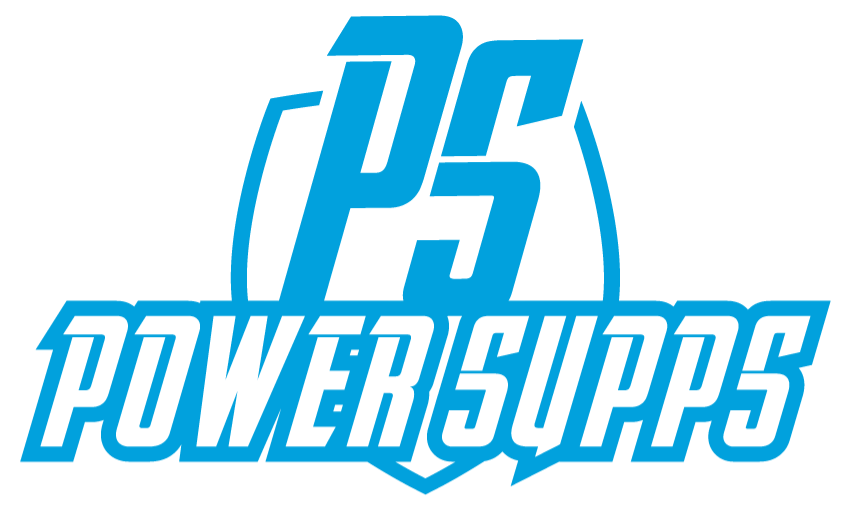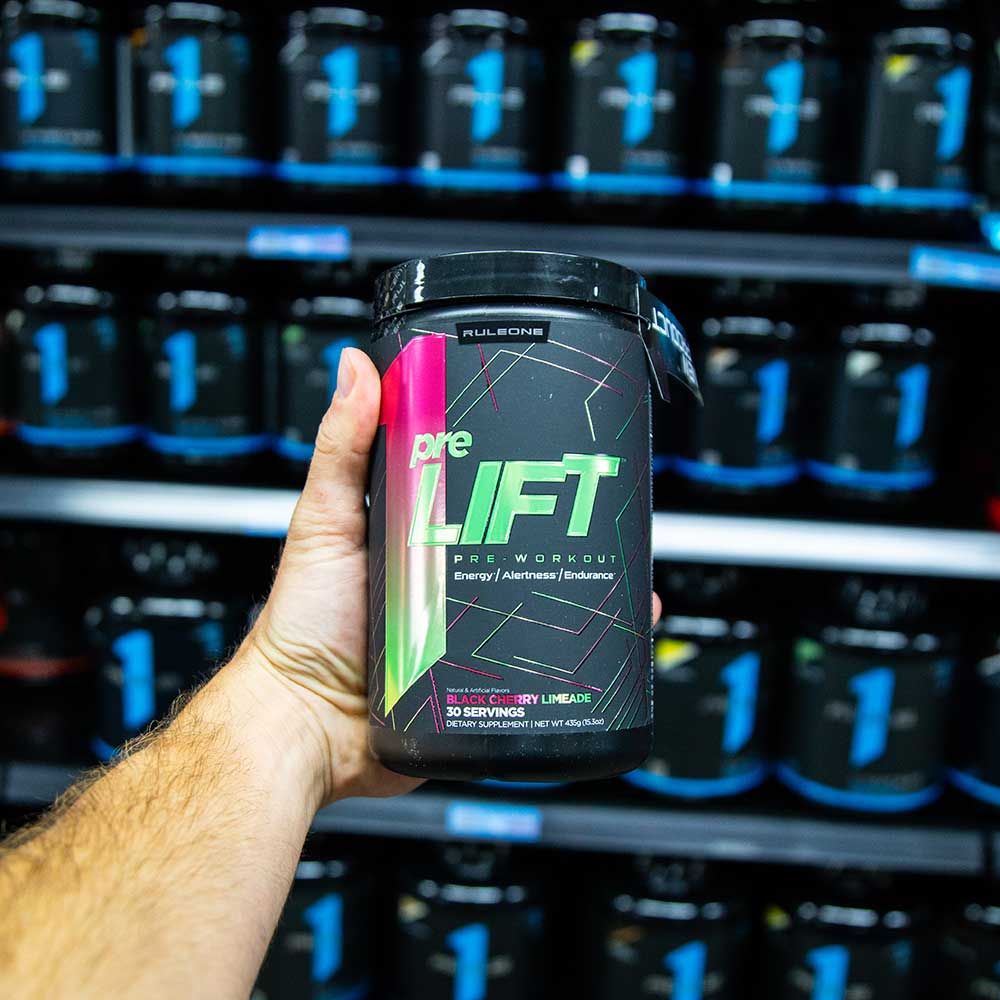Nutrition, Supplements
Pre-workout vs Protein Powder
What’s better, taking a pre-workout or protein powder before you hit the gym? Well, the answer to this question really depends on what you’re going to use them for. There’s no way to say that one is better than the other, but it’s actually beneficial to use these products together to get the best results.
Keep reading to find out everything you need to know about pre-workout vs protein powder.
What’s a Pre-Workout
Let’s start with what a pre-workout actually is. A pre-workout supplement is designed to unlock your beast mode during training by giving you an injection of energy. So, it’s a go-to product to get your energy up to boost performance and endurance and quicken your muscle recovery. The result? It’ll indirectly help you increase your muscle mass and strength.
What is Protein Powder?
Protein powder is a popular dietary supplement that provides you with a concentrated source of protein. Active ingredients often include protein isolate, concentrate, casein, soy, pea protein and milk protein.
Protein powders offer users a great source of macronutrients that are essential to building and repairing muscle tissue during and after workouts. You’ll find most of your BCAAs and essential amino acids in protein powders. Many people use protein powder as a way to supplement their protein intake or to help them build lean muscle. Protein powder is commonly taken after workouts to help with recovery.
Is it better to take pre-workout or protein powder?
Here’s where things get technical because protein powders and pre-workouts don’t have the same functions, but they often share the same ingredients – and they can be used together. So, a protein shake isn’t going to be better than a pre-workout supplement, but here’s where they differ:
They have different functions
A pre-workout is designed to boost performance during a workout, whereas protein powder is designed to strengthen and repair muscles after a workout.
They contain different ingredients
Pre-workouts are usually filled with ingredients that give you a good supply of energy for your workouts, which means most of them will usually contain some caffeine and beta-alanine. Protein powders, on the other hand, contain whey protein concentrate. They’re packed with amino acids to help your body grow lean muscle and recover faster after exercise.
Pre-workouts should be taken before a workout
To make the most of a pre-workout, they should be taken before your workout to ensure that you’re getting enough energy. Due to the caffeine content or other stimulants used in pre-workouts, it’s never a good idea to take them too late in the day as they could disrupt your sleep. Protein powders don’t usually contain these ingredients, so you can take multiple protein shakes at different times during the day.
Reviewing the ingredients in pre-workout
Leading pre-workout supplements typically contain high-quality ingredients that give you the energy boost needed for a successful workout. These ingredients often include:
- Beta-alanine helps prevent muscle acid buildup, allowing your muscles to work harder and longer
- Caffeine boosts energy levels and focus
- Creatine is a natural compound aiding in energy production and muscle strength
- Nitric oxide is naturally produced by the body and improves blood flow by relaxing blood vessels
Some pre-workouts also include protein powder to enhance muscle growth and reduce soreness.
Benefits of Taking Pre-Workout:
Using pre-workout have great benefits that can really help you make the most of your training sessions by:
- Increasing your energy
- Promoting muscle gain
- Giving you huge pumps
- Improving your mental focus and alertness
Drawbacks of Taking Pre-Workout:
While taking a pre-workout does have great benefits, it’s important to know the potential drawbacks, which could include:
- Possible headaches
- Potential jitteriness
- Mild reactions
- Water retention
- Digestive system upset
Reviewing the ingredients in protein powder supplements
Protein supplements are super popular in the health and fitness industry due to their benefits, which become obvious when you start taking them. The common ingredients you’ll find in protein powders are:
- Whey Protein Isolate is a high-quality protein derived from milk, containing all essential amino acids
- Casein Protein is another milk-based protein that absorbs slower than whey and provides a sustained release of amino acids for endurance
- Soy Protein is a plant-based protein which is suitable for vegans and vegetarians and contains essential amino acids
- Pea Protein is very similar to soy protein but is a great alternative for anyone with allergies to soy or dairy
- Rice Protein comes from brown rice and has all the same benefits as soy and pea protein but is a hypoallergenic alternative to them
- Hemp Protein comes from the help seed and is packed with omega-3 fatty acids
- Collagen Protein Sourced from animal connective tissues, supporting joint and skin health
- Egg White Protein is made from egg whites and is a source of protein equivalent to milk-based proteins
- Protein Blends are combinations of different protein sources to provide a balanced amino acid profile
- Flavourings are natural, and artificial flavourings are often added to protein powders to make them taste better and more enticing
- Thickeners are often added to protein powders to make them thicker
- Vitamins and Minerals are used
What are the benefits of taking Protein Powder supplements?
The benefits of using protein powders can make all the difference in reaching your health and fitness goals. They include:
- Promotes lean muscle gain thanks to the content of essential amino acids which contribute to building lean muscle in the body
- Aids in post-workout recovery due to the same amino acids that are active in repairing damaged muscle tissue, which help you recover faster
- Weight management because taking protein promotes the feeling of fullness, which satisfies your appetite
- Nutrition boost because proteins have additional vitamins and minerals in them that add to improving your overall health
- Improves muscle protein synthesis thanks to protein, specifically whey protein, is absorbed into the body at a fast rate, causing your body to process and receive more nutrients faster
- Promotes bone health because most protein powders contain minerals, like calcium, that are vital to maintaining strong and healthy bones
What are the drawbacks of taking Protein Powder supplements?
While protein powders have a lot of benefits, they also have a few drawbacks to them. Common potential side effects associated with using protein powders include:
- Digestive issues
- Gas
- Cramps
- Fatigue
- Nausea
- Bloating
- Headache
Can protein powder and pre-workout be taken together?
You can mix pre-workout with protein powder, but remember, they’re designed to perform different functions, so they may not be as effective. Pre-workouts are designed to help boost you before a workout, and protein powder is often intended for post-workouts.
What is the best time to take protein powder or pre-workout?
The best time for you to take a pre-workout is 15 to 30 minutes before your workout. This will give it time to process and activate, so you use that extra energy when you need it most. Due to the caffeine or other stimulants you should always follow the dosage recommendations (1 to 2 serves maximum per day), and never take them late in the afternoon or evening as they could prevent you from sleeping.
Protein powders, on the other hand, are most effective when taken after a workout as they will aid in muscle recovery. That said, you can take them anytime throughout the day to up your protein intake.
Final thoughts
When you need to make the decision between using protein or pre-workouts, we now know that both are great dietary supplements and can be used together to take your training sessions to the next level. So, you don’t really have to choose either or, but if you have to, then remember that protein is best to help build lean muscle or for recovery, and a pre-workout is for that needed energy boost for workouts.

